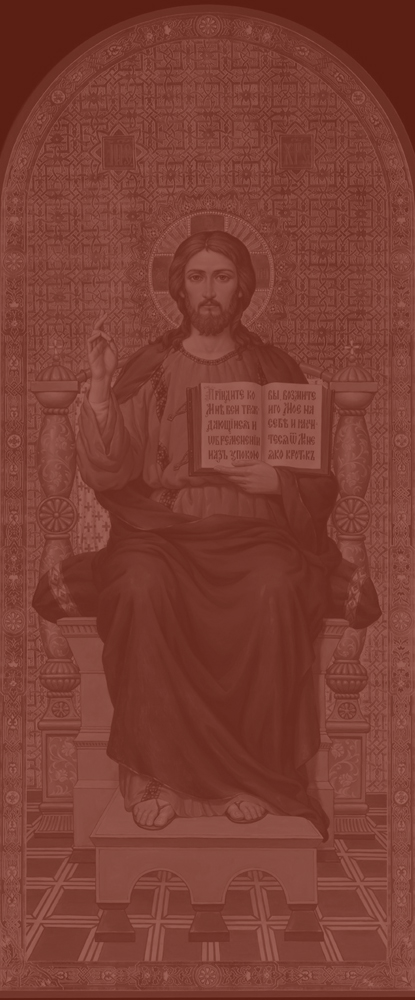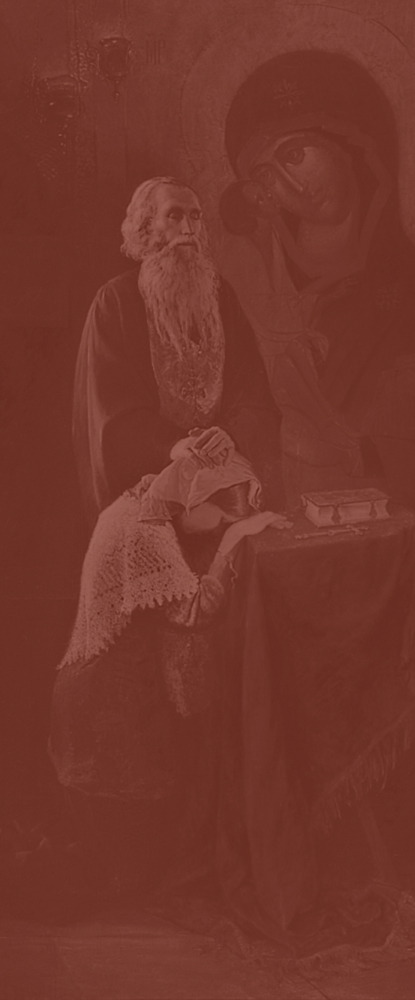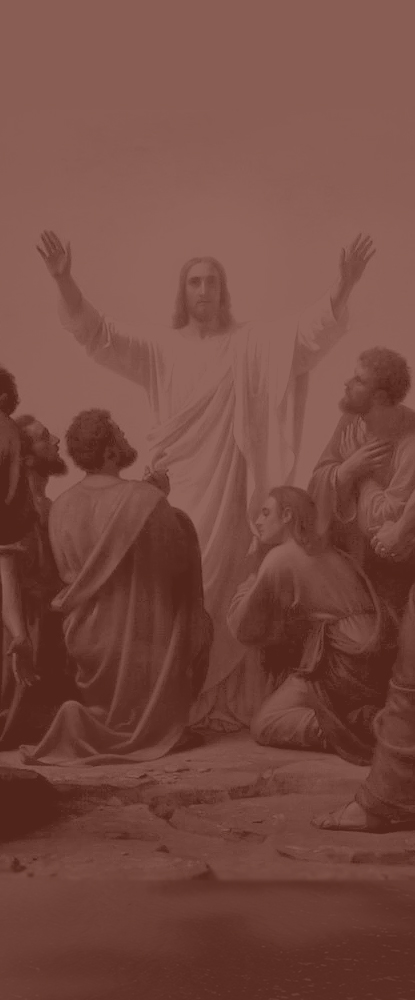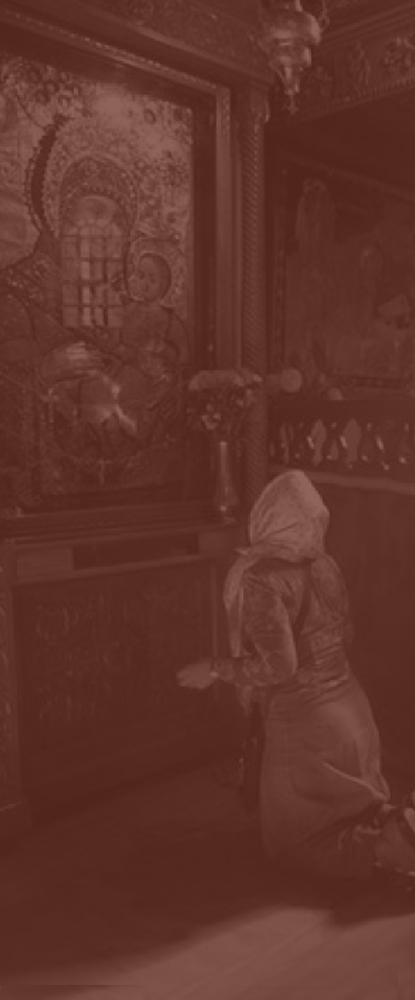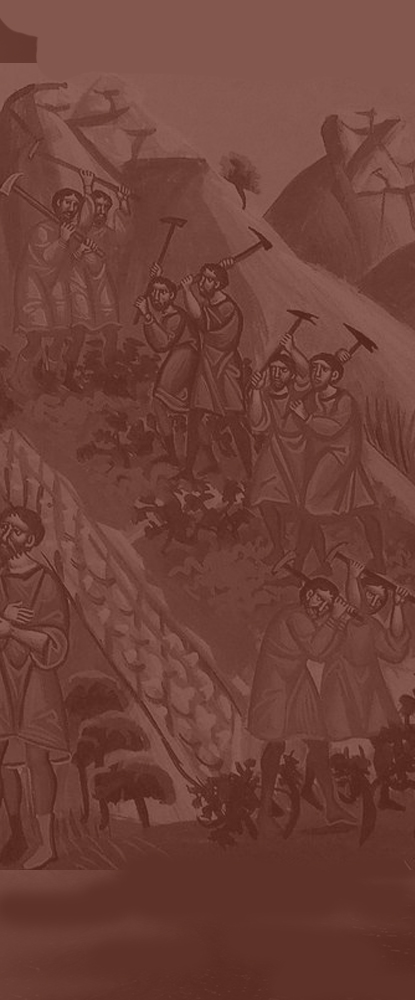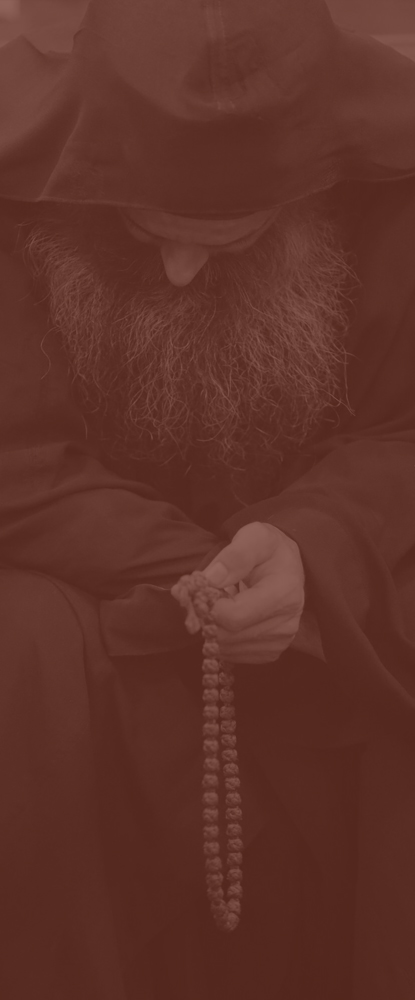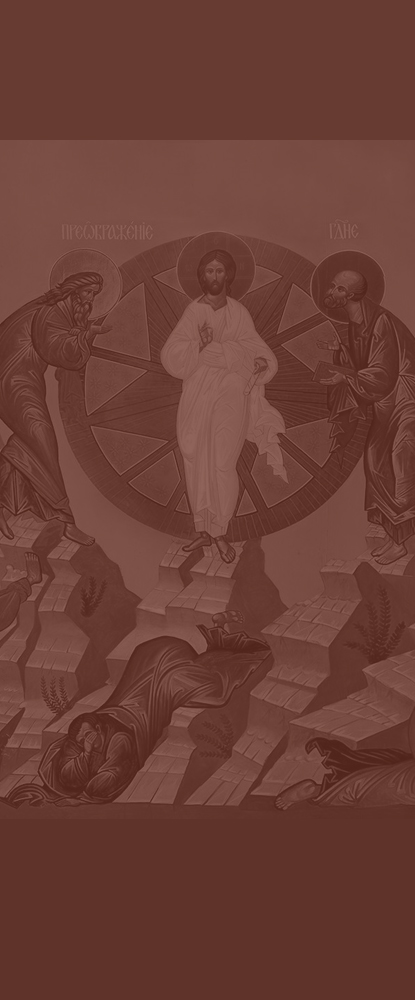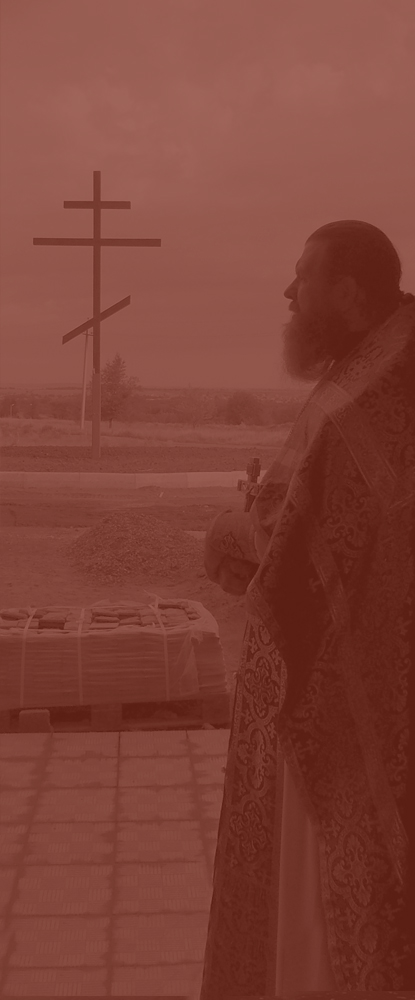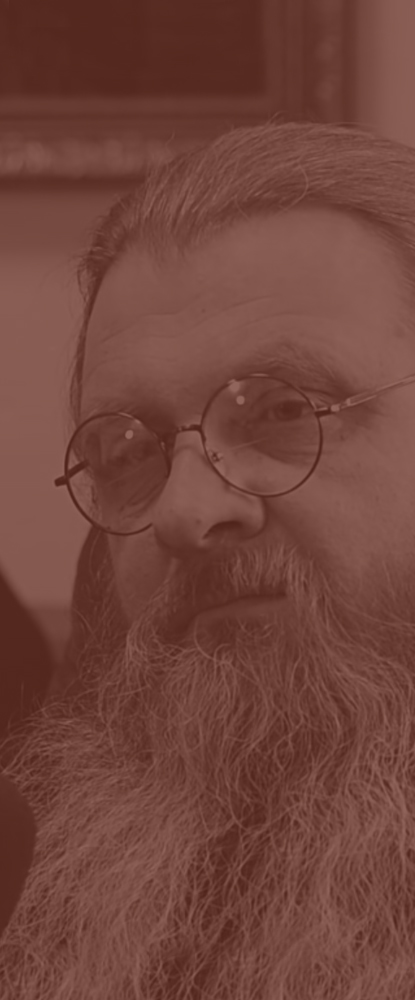ABOUT A WISE PARENT
Archpriest Sergiy Baranov
Holy Trinity Cathedral, Iveron Monastery of Orsk
12.11.2023
In the name of the Father, and of the Son, and of the Holy Spirit!
In today’s Gospel, we heard about how the Lord healed a demon-possessed man. The man had suffered from this great sorrow for years. He was not simply a demon-possessed person but, as the Gospel says, there was a legion of demons in him and they tortured him a lot. It is also said in the Gospel that people tried to bind him with chains and shackles, so he did not wander and hurt himself against the rocks and tear his body; they tried to put some clothes on him, but he tore everything apart. Or rather, it was not him, who tore, but the demonic power that did it. So, this man wandered about those deserted lands, naked, frozen and hungry.
There was a touching moment there. Driving these demons out, the Lord entered into a conversation with this demonic power. The demons told him, “We are a legion.”1 Then they, the demons, begged the Lord that He would not command them to go out into the abyss. Look, what a touching moment it is. God answers the prayer of the demons. They ask Him and He answers even the prayer of demons and does not let them go into the abyss. They say, “A herd of many swine is feeding here, permit us to enter them.” And the Lord permitted them to enter the pigs. What a touching moment! Demons pray and the Lord answers the prayer of demons.
Every one of us standing here, who pray occasionally, from time to time, from sorrow to sorrow, from request to request, every one of us can become confused in our heart due to our spiritual inexperience and unwisely say, “The Lord hears even demons and answers their supplication. Why doesn’t the Lord answer my requests, even in emergencies? There were so many cases in my spiritual life, when I asked, ‘Lord, help me! Everything is bad. The situation is critical’ but it seems to me God was not by my side at those moments and did not answer me.” Look what happens to that request of the demons then. The Lord says, “Alright, let it be as you ask. If you want to enter the swine, you are welcome, do it.” But it changes nothing for the demons. They enter the swineherd, drive it mad and it runs violently down the steep place into the lake. The Lord’s answer to their request and His compassion changes nothing for the demons, as they were demons, so they remained, nothing changes their damage.
Therefore, we should apply a reciprocal change of our nature to every of Lord’s answer to our requests. We need to change our nature. “Metanoia” is a Greek word for “change,” in Russian it is “repentance.” “Metanoia” is a Greek word, which means the change of consciousness. When people’s consciousness changes, they begin to behave correctly in a spiritual way. First, they begin to pray correctly, ask correctly, accept correctly and preserve this state correctly. If the Lord answered every one of our stupid and unwise requests (even if it seems to us that we are asking for the good) because of our imperfect mind, soul and heart, fretted with sin, this request for the good will repeat the situation in the future. The Lord says, “Well, you are asking Me. Let it be this way.” However, the result might be negative, because we do not ask for the good. As the Holy Apostle says, “You ask and do not receive.”2 Why? Because we do not ask for the good.
What is good? It is a very relevant notion. There is good from the point of view of our earthly being. It seems to us that the good is wellbeing, stability, and peace. Meanwhile, spiritual good is often different. The Lord tells the following terrifying words to His disciples, “If you want to be my disciple, take up your cross and follow me.”3 And the Gospel says after this, “From that time many people went back and walked with Him no more.”4 Because they did not see the good in the theme of the cross. They lived through the earthly mindset: it is good when everything is alright in your family, everyone is healthy, you have a job, stability, money and everyone feels good. For us, earthly people, this is good. However, the Lord always looks from the point of eternity. He sees that when our earthly being is good, our heart becomes dry. Our heart begins to think about life. It is a mere dot, a dot on the line of life. What is our life? It flares up and blows out. Someone might think a hundred years is a lot. Ask elderly people, “Is it a lot?” They would say, “As if I was born yesterday.” This is the way life flashes by. When we try to put all the meaning into this small dot, we make a mistake. While the Lord does not look at this dot, He takes care of us considering eternity. And He understands, if we concentrate all our attention, life and values only at this point, we will make a mistake and this will cause us harm. This is why the Lord lets sorrows be, so we can realize how everything is unstable and unreliable. It seems, you have ceased stability, but sorrow comes from where you do not expect it to come. It resembles a house, which is built on the sand, or a rich man who gathered his wellness and thinks he will own it forever. He does not even suppose that someone is going to rob him at this very moment. He does not even realize that life circumstances, permitted by God, have come to meet him now when he thinks he has made provisions for everything. He calculated his stability, but does not even suspect that sorrow is coming to him at this very moment and this sorrow is a part of God’s providence and this providence saves us in the perspective, in the future.
People, wake up! Everything is unreliable, everything is very unstable. Live considering eternity. Live looking into eternity. Do not stop your whole mind and thought here, at this point. This point will not exist tomorrow. Perhaps, this point is filled with sorrow or joy, but tomorrow there will be none of them, neither sorrow nor joy. This is why you bear your sorrow with gratitude to God. And bear your happiness remembering it is not the main thing and it does not make the whole sense. Everything passes, and this will pass too.
Those people who know what sorrow is, become wise for eternity. While people who do not know sorrow, remain wise only in this short life. Tomorrow there will not be this life. We, Christians, work considering the perspective, we work for the future life. This is why we go to church, pray, observe the commandments, save the relationship with God, no matter if we feel bad or not, if we can pray or not, if it seems to us that the Lord abandoned us. Sometimes it seems that you are the most sorrowful person in the world, because some of your friends are well or stable. “Why are my things bad?” you think. Perhaps, God is kissing and embracing you at this very moment because He loves you considering the perspective.
Lord Jesus Christ…
An earthly parent, who is unwise, pampers his child. He feels pity for him or her today, at this moment, and he does not think that this spoiled child will suffer from his spoiled character in the future. But the earthly parent, limited by his earthly “love,” loves him only now and does not understand that now he must be strict, come over the tears of his child, so he will be wise, hardworking, obedient and happy in the future.
A wise parent keeps up with the immediate sorrow of his child with bleeding heart and loves considering the perspective. While an unwise one might love himself in this child. He cannot overcome the discomfort caused by the tears and immediate sorrow of his child and does not think what will happen to him next.
Glory to our God, always, now and unto the ages of ages!
1Lk. 8:30
2Jm. 4:3
3Mt. 16:24, Mk. 8:34, Mk. 10:21, Lk. 9:23…
4Jn 6:66

